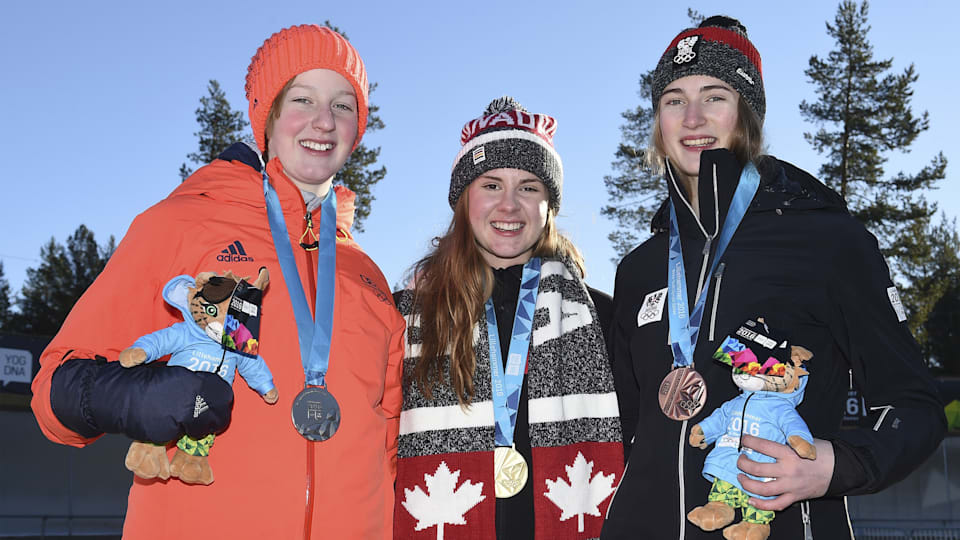
The Lillehammer 2016 Winter Youth Olympic Games discovered the world’s fastest dancer on Monday – a Canadian luge racer who goes through her moves at speeds most people would only dare to reach on a motorway.
Brooke Apshkrum clocked a top speed of 114.7kmh (71.2 mph) as she won a surprise gold medal in the women’s singles luge. The 16-year-old racer from Calgary then revealed that she regards sliding on her back down an ice track as a “dance with her sled.”
“It’s not the speed I like the most but the feeling going down. It’s like dancing with your sled. It’s neat,” she said. “You feel every movement and feel the pressure with you. Different tracks have different feelings.
“You don’t notice you are going fast. It seems quite slow. I think about 10 things during one corner, so it is timeless.”
The Quickstep is the only dance that would get close to the mental agility which luge racers require to get around every corner at high speeds measured to the thousandth of a second. Apshkrum used to be a dancer and competed in martial arts before she was introduced to luge at the age of 10.
Her parents Mark and Sandy, who were at the Lillehammer Sliding Centre to witness their daughter’s surprise victory over Germany’s former world junior champion Jessica Tiebel and Austrian bronze medallist Madeleine Egle, admit they were nervous about her taking up the sport at first.
“We were hesitant but it seemed to be something that her heart was set on from the first time,” Mark said. “So there was no turning back and we supported her. She has always had the body balance and that translates into her controlling the sled.”
Sandy added: “I do worry every day but I worry less as I know how capable she is. Her dream is to go all the way. If it’s her dream, then it’s our dream.”
Tiebel, who has struggled with a viral illness in the last year, was fastest in Monday’s first leg, clocking 53.106 seconds with Apshkrum and Egle equal second, 0.059 behind (53.165) ahead of the decisive run.
But the Canadian raced the fastest second run of 52.861 for an aggregate 1:46.026. Tiebel clocked 52.991 for 1:46.097 overall to take the silver medal ahead of Egle (1:46.267).
After failing to be fastest in any of the training runs, Apshkrum admitted she was surprised by the victory. “It is my best ever result and it has not quite hit me yet,” she said.
Italians Felix Schwarz and Lukas Gufler won the other gold medal of the day in the doubles with an aggregate 1:44.260 for the two runs. Germans Hanness Orlamuender and Paul Gubitz took the silver (1:45.114) ahead of Russian bronze medallists Vsevolod Kashkin and Konstantin Korshunov (1:45.272).
Written by YIS / IOC ADRIAN WARNER
<>
